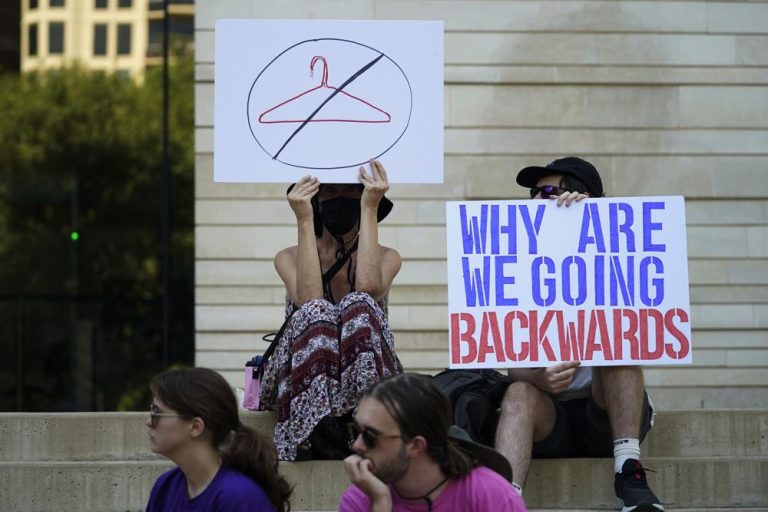
(AP) – At 88, Gloria Steinem has long been the nation’s most visible feminist and advocate for women’s rights. But at 22, she was a frightened American in London getting an illegal abortion of a pregnancy so unwanted, she actually tried to throw herself down the stairs to end it.
Her response to the Supreme Court’s decision overruling Roe v. Wade is succinct: “Obviously,” she wrote in an email message, “without the right of women and men to make decisions about our own bodies, there is no democracy.”
Steinem’s blunt remark cuts to the heart of the despair some opponents are feeling about Friday’s historic rollback of the 1973 case legalizing abortion. If a right so central to the overall fight for women’s equality can be revoked, they ask, what does it mean for the progress women have made in public life in the intervening 50 years?
“One of the things that I keep hearing from women is, ‘My daughter’s going to have fewer rights than I did. And how can that be?’” says Debbie Walsh, of the Center for American Women and Politics at Rutgers University. “If this goes, what else can go? It makes everything feel precarious.”Reproductive freedom was not the only demand of second-wave feminism, as the women’s movement of the ’60s and ’70s is known, but it was surely one of the most galvanizing issues, along with workplace equality.
The women who fought for those rights recall an astonishing decade of progress from about 1963 to 1973 including the right to equal pay, the right to use birth control, and Title IX in 1972 which bans discrimination in education. Capping it off was Roe v. Wade a year later, granting a constitutional right to abortion.
Many of the women who identified as feminists at the time had an illegal abortion or knew someone who did. Steinem, in fact, credits a “speak-out” meeting she attended on abortion in her 30s as the moment she pivoted from journalism to activism — and finally felt enabled to speak about her own secret abortion.
“Abortion is so tied to the women’s movement in this country,” says Carole Joffe, a sociologist at the University of California, San Francisco medical school who studies and teaches the history of abortion. “Along with improved birth control, what legal abortion meant was that women who were heterosexually active could still take part in public life. It enabled the huge change we’ve seen in women’s status over the last 50 years.” Joffe says many women, like her, now feel that the right to contraception could be at risk — something she calls “unthinkable.”
One of them is Heather Booth. When she was 20 and a student in Chicago, a male friend asked if she could help his sister obtain an abortion. It was 1965, and through contacts in the civil rights movement, she found a way to connect the young woman, nearly suicidal at the prospect of being pregnant, to a doctor willing to help. She thought it would be a one-off, but Booth ended up co-founding the Jane Collective, an underground group of women who provided safe abortions to those in need. In all, the group performed some 11,000 abortions over about seven years — a story recounted in the new documentary “The Janes.”






